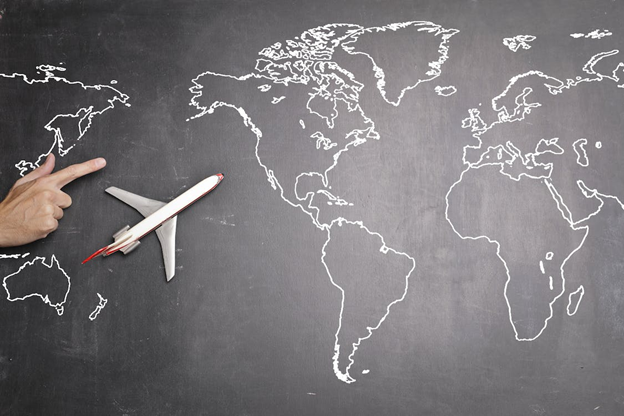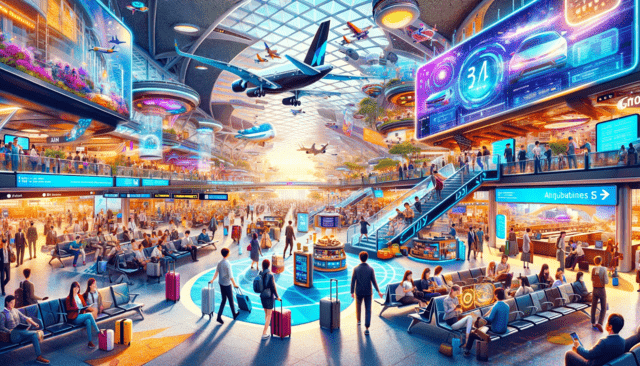How can air travel become more gamified? Tips that airlines may consider
Gamification is combining elements of a game with other non-gaming activities. These might include things like point scoring and earning, competition between individuals and teams, and rules for how a game is played. Other elements include leveling up based on your actions, so you earn more as you engage more. Gamification can be extremely beneficial to all sorts of activities. Especially when it comes to keeping engagement from customers.
If you can get customers involved with trying to beat their own scores or with fighting for various rewards, they will stick around. People spend nearly 12 hours per week engaging in video games of some variety. So gamification has some staying power and a wide audience. For many people, gamification is one of the best ways to get people engaged. This is why so many industries are starting to embrace gamification.
One of these industries includes air travel. It can benefit from becoming gamified, and the implication of the games is pretty easy. Here are some of the ways airlines can benefit from making air travel a game.
Personalization is Important: The way gaming platforms work
Learning gamification from gaming platforms is the best decision, and a careful examination showcases that one of the major factors of their success is user personalization. One good example is live dealer casino platforms that create a personalized experience for each player at the table. They can do this by allowing players to have complete control of the user interface setting. Then players can position everything to their liking on the screen, which is terrific because although all the players are in the same game, they experience it differently and more enjoyably.

Additionally, live dealer casino options can localize their games. So if a player is from a certain part of the world and prefers to speak their native language, then they can. The ability to switch between languages for multilingual players can be comforting.
Personalization for airlines is important as well, reminding the interaction on gaming platforms: People can be on the same plane but experience different things. If they are flying frequently then you want them flying frequently with your airline. That means meeting their needs halfway. Airlines need to know whether the traveler is a digital nomad seeking a trip to their next adventure. Or if the customer is a CEO hustling to get to a new business meeting. This knowledge can help the airline market to them. The more personal the experience is, the more likely the customer is to come back. Especially because it is an experience they won’t be getting elsewhere.
Gamification Can Use Rewards To Enhance Customer Engagement
Gamification offers people rewards that can encourage them to come back again and again. Enhancing customer engagement is a great way to ensure that customers continue to be loyal. Airline travel is no different.
For example, the airline Delta Airlines has launched a SkyMiles app. This app allows customers to earn points for the various things they would normally do at an airport. Booking flights, checking their bags, watching short videos, etc. Then all of those points can be redeemed for various rewards. Some airlines are even using this point-based system to promote competition among their customers.
Customers are trying to get more points to rank up on the leaderboard, and spending more money on flights to do so.
Gamification Can Enhance Shopping
Most people like to shop while they wait for the flight. They might shop around and get some last-minute items, pick up a souvenir of the journey, or grab a meal before takeoff. This behavior can and has been gamified! United Airlines has launched a game called MileagePlus X that allows customers to earn points by shopping.
Customers get points every time they shop at specific retailers or do business with any of the airline partners. Then they can redeem those miles for various rewards! The loyalty program helps with Gamification because it rewards customers for doing what they would do while working with the airline, which is easy, and the benefits are real.
Gamification Can Be Used To Help Employees Train
It is no secret that simulation is a massive benefit for people who are doing very complex jobs. For example, air traffic controllers and ground handlers can benefit from having common scenarios played out virtually for them. Then they can practice how to respond to those scenarios. All without the added stress of real-life pressure.
There are various games such as ‘Skytime’ from Dubai Air Navigation Services, and ‘Aviatar’ from Swissport. All of these allow employees to train while playing a game, leveling up, and improving their skills along the way.
Air Travel Can Benefit From Gamification, As Long As It Is Done Correctly
Creating engaging games that benefit the customer who is playing them, rather than games that are just a cash grab can be hard. But if gamification is incorporated into the airline industry correctly, then there are plenty of benefits to be had!
